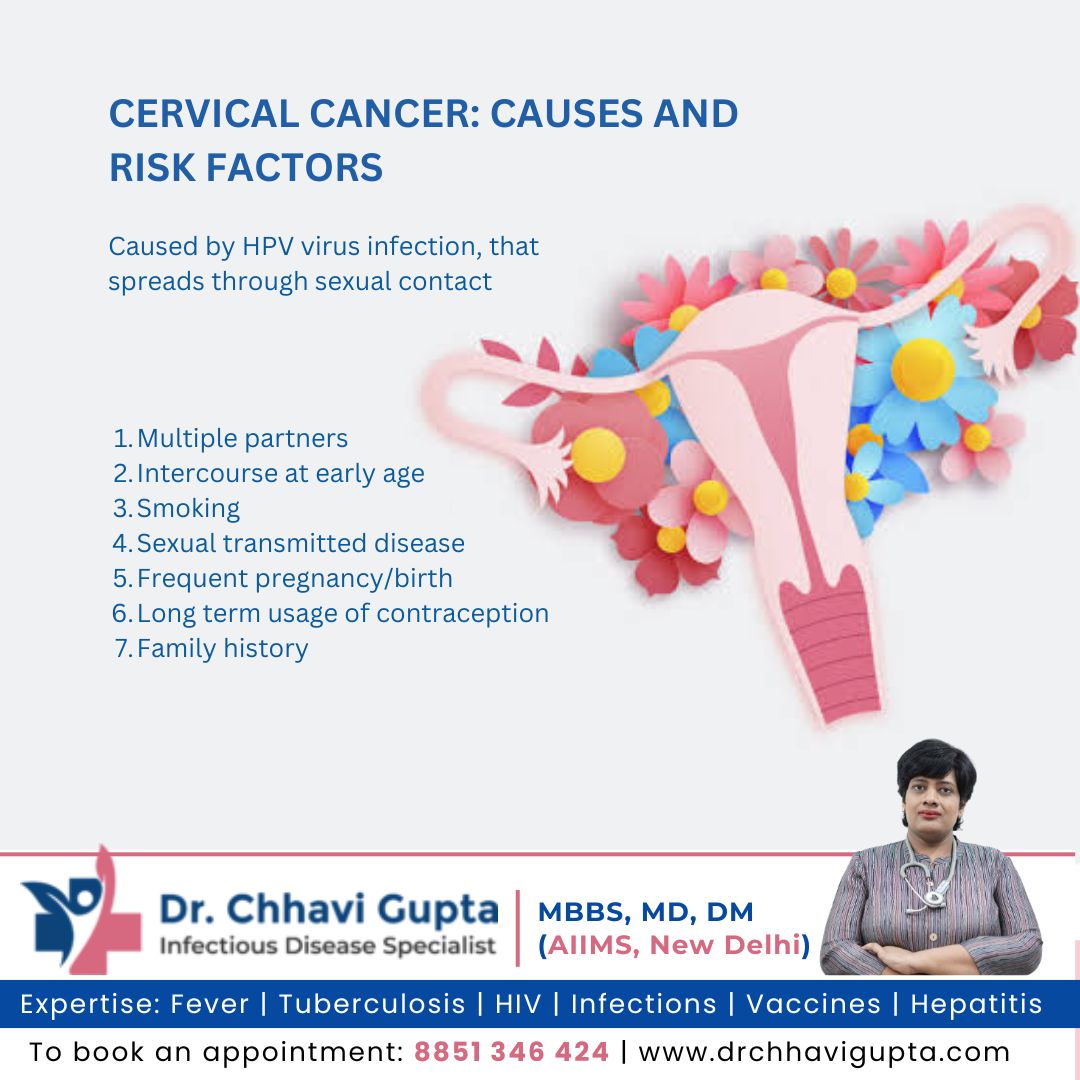CERVICAL CANCER: CAUSES AND RISK FACTORS
Cervical cancer is primarily caused by infection with the human papillomavirus (HPV), which spreads through sexual contact. Several factors can increase the risk of developing cervical cancer:
- Multiple Sexual Partners: Having multiple sexual partners increases the likelihood of contracting HPV, the primary cause of cervical cancer.
- Early Age at First Intercourse: Engaging in sexual activity at a young age is linked to a higher risk of HPV infection, which can lead to cervical cancer.
- Smoking: Smoking damages cervical cells and weakens the immune system, making it harder to fight HPV infections.
- Sexually Transmitted Diseases (STDs): Infections such as chlamydia, gonorrhea, syphilis, and HIV increase the risk of HPV infection and cervical cancer.
- Frequent Pregnancy/Birth: Multiple full-term pregnancies can increase the risk of cervical cancer due to hormonal changes and HPV exposure.
- Long-term Use of Contraceptives: Extended use of oral contraceptives is associated with a higher risk of cervical cancer.
- Family History: Having a family history of cervical cancer can increase the risk, indicating a possible genetic predisposition.
Preventive Measures:
- HPV Vaccination: Vaccines like Gardasil and Cervarix protect against the HPV strains most commonly linked to cervical cancer.
- Regular Screening: Pap smears and HPV tests help detect precancerous changes in the cervix, allowing for early treatment.
- Safe Sexual Practices: Using condoms and limiting sexual partners reduce the risk of HPV infection.
- Quitting Smoking: Avoiding tobacco lowers the risk of cervical and other cancers.
For expert advice and care, consult Dr. Chhavi Gupta, an infectious diseases specialist with qualifications from AIIMS, New Delhi.
📞 Call Now: +91 8851 346 424

